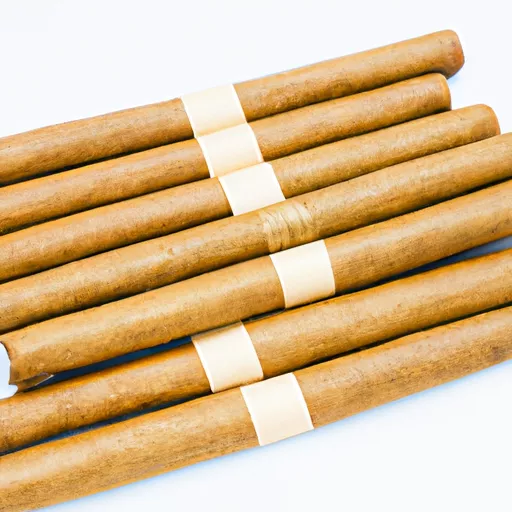what are little cigars

As someone who enjoys the taste and experience of smoking, I have always been intrigued by the world of little cigars. These petite versions of their larger counterparts offer a unique blend of traditional cigar flavors in a more compact and convenient size. In this article, I will explore the world of little cigars, including their history, flavor profiles, and how they differ from traditional cigars.
First, let’s dive into the history of little cigars. These mini cigars gained popularity in the United States in the 1970s as a more affordable alternative to traditional cigars. They were typically made with leftover cigar cuttings and scraps, resulting in a lower cost to the consumer. However, as little cigars gained popularity, manufacturers began producing higher quality blends with premium tobacco, attracting a wider audience and elevating the perception of these small smokes.
One of the key differences between little cigars and traditional cigars is their size. Little cigars are typically shorter and thinner, making them perfect for a quick smoke break or for those who prefer a milder cigar experience. However, do not be fooled by their small size, as they still pack a flavorful punch.
When it comes to flavor, little cigars offer a wide range of options. From sweet and fruity to bold and spicy, there is a little cigar for every palate. Some popular flavors include vanilla, cherry, and even chocolate. These flavored little cigars appeal to a broader audience, including those who may not typically enjoy the taste of a traditional cigar. However, for those who prefer a more classic cigar flavor, there are also non-flavored options available, such as natural tobacco or menthol.
One of the main selling points of little cigars is their convenience. Their compact size makes them easy to take on-the-go, whether it’s to a party or on a trip. They also do not require a cutter, as they come pre-cut and ready to smoke. This makes them ideal for beginners who may not have the proper tools or experience to cut a traditional cigar.
Another aspect that sets little cigars apart from traditional cigars is the way they are smoked. While traditional cigars are meant to be slowly savored and enjoyed, little cigars are often smoked in a similar way to cigarettes, with quicker and more frequent puffs. This makes them more appealing to those who prefer a shorter smoking experience.
One of the potential downsides of little cigars is that they are not considered as high-quality as traditional cigars. This is due to the fact that they are made with scrap tobacco and may not undergo the same aging and fermentation processes as larger cigars. However, as mentioned earlier, with the rise in popularity, more manufacturers are producing higher quality little cigars with premium tobacco, minimizing this potential issue.
When it comes to storage, little cigars should be treated similarly to traditional cigars. They should be kept in a controlled environment with a humidity level of around 70%, ideally in a humidor. This ensures that the cigars stay fresh and maintain their flavor for a longer period of time.
In terms of pricing, little cigars are still more affordable than traditional cigars, making them a popular choice for those on a budget. However, keep in mind that higher quality little cigars may come at a higher cost.
One important aspect to note is that, like traditional cigars, little cigars also contain nicotine and can be addictive. It is essential to smoke in moderation and be aware of the potential health risks associated with smoking.
In conclusion, little cigars offer a unique and convenient option for those who enjoy smoking. With a variety of flavors and a more manageable size, they appeal to a broader audience. While not considered as high-quality as traditional cigars, little cigars are gaining popularity and are now produced with higher quality tobacco. So, next time you are in the mood for a quick smoke, give little cigars a try and experience their delicious and robust flavors.